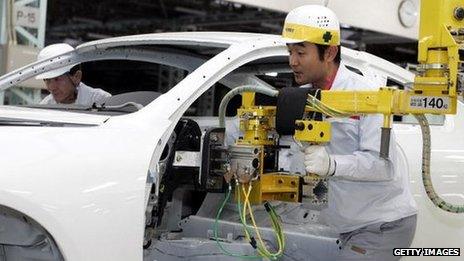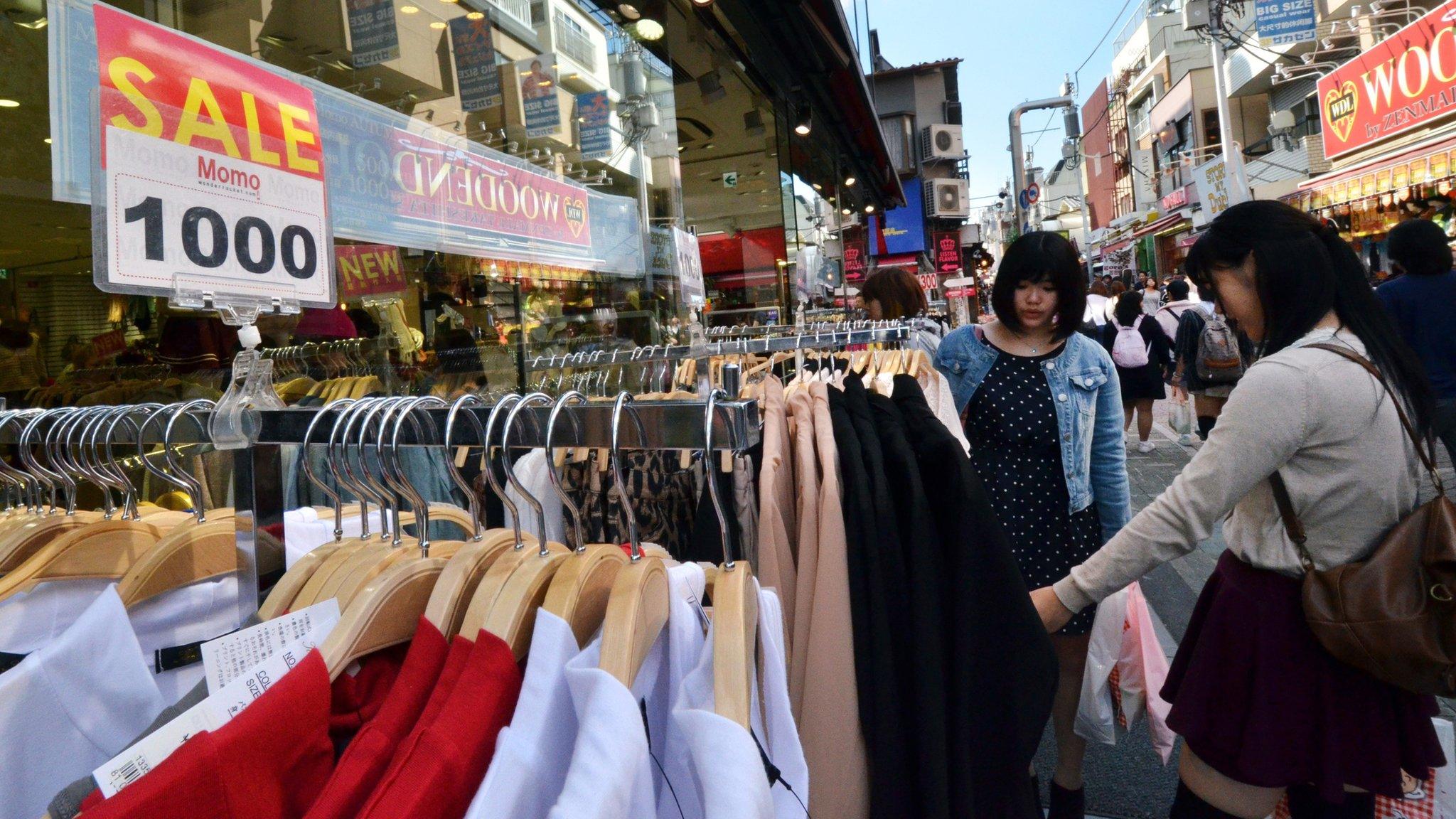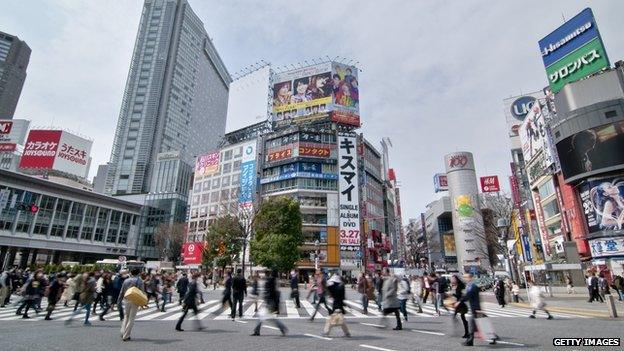Japanese business sentiment dips
- Published

Japan's big firms plan to boost their capital expenditure in the coming months
Japanese business sentiment dipped in the three months to June, the Bank of Japan's latest Tankan survey has shown.
The big manufacturers' index fell to plus 12, from plus 17 in the previous quarter. A positive reading shows firms feeling optimistic about the economy outnumber those feeling pessimistic.
It is the first time business optimism has deteriorated in six quarters.
The survey is being closely watched to gauge the reaction to the sales tax hike in April - the first in 17 years.
Its results showed that sentiment is likely to improve in the coming months.
According to the survey, external, large companies in Japan plan to raise their investment by 7.4% in the current financial year, which analysts said was an indication that they were upbeat about the economy.
"Capital expenditure plans are very strong, showing companies do not expect the economy to worsen simply because the sales tax rose," said Shuji Tonouchi, senior fixed income strategist at Mitsubishi UFG Morgan Stanley Securities.
Spending dip?
Japan raised the rate of sales tax - also known as consumption tax - from 5% to 8% on 1 April.
The move is widely seen as an attempt by the government to ease its financial burden as it faces rising social welfare costs due to an ageing population.
At the same time, the country is trying to rein in its public debt - which at nearly 230% of its gross domestic product (GDP) is the highest among industrialised nations.
The sales tax hike has also contributed to a jump in prices, as businesses have looked to pass on the increase to consumers.
Data released last month showed that consumer prices in Japan rose at an annual rate of 3.4% in May, the fastest pace in 32 years.
While that has been good news for Japan's policymakers - who have been trying to reverse a trend of nearly two decades of deflation or falling prices - some have warned that a sharp increase in prices may hurt domestic demand and impact growth.
"Prices are rising faster than wages, so there is a chance that consumer spending could fall more than expected," said Yuchi Kodama, chief economist at Meiji Yasuda Life Insurance in Tokyo.
The fear is that if domestic consumption falls it may hurt business sentiment and impact firms' spending plans.
- Published27 June 2014

- Published24 June 2014
- Published24 June 2014
